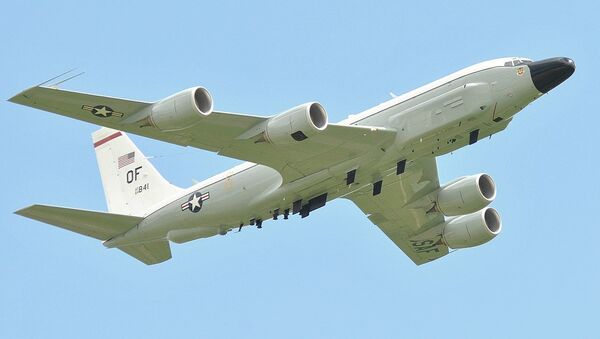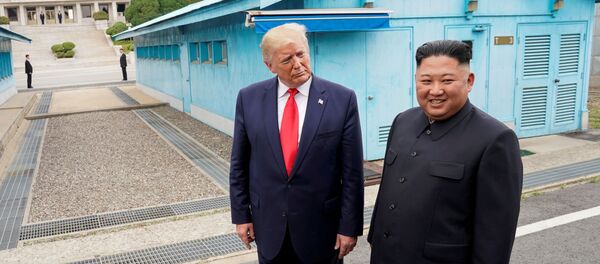The US Air Force has recently intensified its flights in the vicinity of North Korea’s borders, as the date when the promised "Christmas gift" from the country will be revealed is drawing closer, Aircraft Spots, a Twitter account monitoring military flights, reported, citing radar data.
Last night RC-135S Cobra Ball 62-4128 arrived into Kadena AB, Okinawa with RC-135S 61-2662 already deployed there. No signs of 61-2662 heading back to Offutt any time soon. Wondering if this a beef up in flights in anticipation for North Korea’s “Christmas Gift”?
— Aircraft Spots (@AircraftSpots) December 20, 2019
The USAF has conducted six flights in three days since new aircraft arrived at the Kadena Air Base in Okinawa, which Aircraft Spots called "a beef up" allegedly linked to the DPRK's warning to the US, which is tied to progress in the denuclearisation talks.
RQ-4 Global Hawk position at 53,000 feet pic.twitter.com/YcP9VazJKD
— Aircraft Spots (@AircraftSpots) December 25, 2019
On 25 December alone, the aviation tracker spotted an RC-135W Rivet Joint spy plane, an RQ-4 Global Hawk drone, and an E-8 surveillance aircraft flying over the Korean Peninsula. At the same time, two RC-135S Cobra Ball reconnaissance planes were reportedly detected flying across the Japan Sea not far from North Korea’s shores.
USAF RC-135S 61-2662 MESS49 departed Kadena at 0100Z - Sea of Japan mission pic.twitter.com/yB0S6tI4kN
— Aircraft Spots (@AircraftSpots) December 25, 2019
Kim Jong-un's 'Christmas Gift'
Such flights by spy planes near the DPRK's borders could allow the US to detect and analyse possible new missile launches by the country. North Korea recently test-launched short and medium-range missiles into the Japan Sea, but promised a special "Christmas Gift" for the US, the nature of which will depend on the renewal of denuclearisation talks by the end of the year.
The last round of these talks wrapped up prematurely in Hanoi at the end of February 2019 for reasons that are still not fully clear. Trump stated that the DPRK had demanded that all international sanctions be lifted, but media reports suggest that the talks' failure could have been caused by then US National Security Adviser John Bolton's hawkish ideas for denuclearising the Korean Peninsula.
Trump later criticised Bolton for referring to the "Libyan model" in his suggestions on denuclearisation in talks with the DPRK, but didn't explicitly blame him for the failure of the negotiations.




